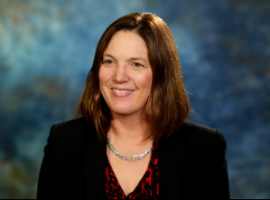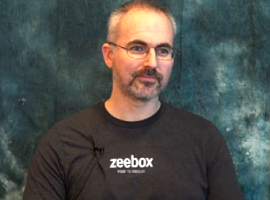InfoQ Homepage Group Communication Content on InfoQ
-
Kate Heddleston on Improving the Usability of Ops Tools to Improve Company Culture
Kate Heddleston explains why it's necessary to make Ops tooling easy to use, how Usable Ops and better documentation can improve the culture in teams, and much more.

-
Dianne Marsh on Language and Frameworks Used at Netflix, the Manager's Role, and Diversity in IT
Dianne Marsh talks to Charles Humble about hiring an engineer at Netflix, organising an engineering team around speed of execution, the languages and frameworks Netflix uses, and diversity in IT.

-
Glen Ford on Building Great Teams, Lean and DevOps
Glen Ford talks about his experiences in different organizations' environments, from start-ups to the likes of BBC. Glen discusses how to build great teams and why in his view Kanban works better than Scrum. Finally, Glen explains how Lean, DevOps and systems architecture all influence each other.

-
Linda Rising on Thinking about Thinking and the Agile Mindset
Linda Rising was interviewed at QCon London 2014. She speaks about the difference between the Fixed and the Agile mindeset, looks at the links between cognitive neuroscience and agile development. She discusses the value of standing and moving around when working and addresses number of myths about change.

-
Steve Adolph on Effective Communication and Healthy Backlogs
Steve Adolph discusses his PhD research on communications in organisations, the importance of boundary spanners and how a large backlog becomes an impediment to product development flow. He talks about he importance of the ScrumMaster role, problems with Product Owners and where Business Analysis can add value.

-
Andrew Prentice and Jo Cranford on Testing and Development at Atlassian
Andrew Prentice and Jo Cranford talk about testing and development approaches at Atlassian, in particular the role of Quality Assistance and approaches to effectively testing JavaScript.

-
Amr Elssamadisy – Safety
Amr Elssamadisy, founder of Agile Culture New York and author of the book Agile Adoption Patterns, shares his thoughts on why safety is essential to Agile success. We know that learning is essential for successful agility, and teams learn best through failure – but failure is inherently unsafe. The key to success is in making things safe. Without safety you cannot learn effectively from failure.

-
Dan Mezick – Engagement
Dan Mezick, author of the book The Culture Game, shares his insights on engagement as the fuel of successful and lasting Agile adoptions. Pulling examples from Open Spaces and the computer gaming industry, Dan explains how they both implement four basic rules: have a clear goal, a clear set of rules, a good feedback system, and support an opt-in participation strategy.

-
Vickie Gray - The Core Protocols
Vickie Gray, author of the book Creating Time, shares her insights on the Core Protocols and how they can be used to solve many of the common problems that plague teams. The Core Protocols provide a common API on which the team can operate when performing Agile processes like Scrum or Kanban, and according to Vickie, we need this common API because humans are much more complicated than code.
-
The Core Protocols
In this interview, Jim and Michele McCarthy, co-founders of McCarthy Technologies, Inc. and authors of the book Software for Your Head, share their insights on the Core Protocols and the Core Commitments on which they’re based. These tools provide a set of structured interactions between people on a team, and when coupled with safety, freedom, and radical democracy, can lead a team to greatness.
-
Linda Cook on Management Debt and Diversity in the Workplace
Linda Cook is a board member of the Agile Alliance. She talks about the impact of Management Debt on the ability of teams to be fully successful, diversity in the workplace and the impact of women leaving technical fields and the international role of the Agile Alliance.

-
Trisha Gee from LMAX Discusses Concurrent Java Programming, Agile, and Diversity in IT
In a wide-ranging interview, LMAX's Trisha Gee talks to Charles Humble about using Java for low latency programming, and the Disruptor, an open source concurrent programming framework developed by LMAX. She also discusses the agile management techniques used at LMAX, and issues around gender and ethnic diversity in IT.